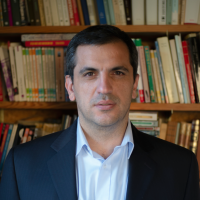Lebanon and Syria are historically and geographically interconnected; hence, the fall of the Bashar al-Assad regime in Syria is expected to impact Lebanon significantly. While the immediate effects may shape bilateral policies, the repercussions could leave a lasting mark on Lebanese politics.
First, the fall of the Assad regime will have limited impact compared to the two currently dominant themes in Lebanese politics: the implementation of the November 27, 2024, ceasefire with Israel and the implications of electing President Joseph Aoun on January 9.
First, the fall of the Assad regime will have limited impact compared to the two currently dominant themes in Lebanese politics: the implementation of the November 27, 2024, ceasefire with Israel and the implications of electing President Joseph Aoun on January 9. The Assad regime had no significant say in Lebanese politics for at least a decade as Hezbollah emerged as the dominant force in 2008, while the US and Iran have emerged as the major foreign powers. There are inherent tensions between Hayat Tahrir al-Sham (HTS) and Hezbollah, given their past military confrontations on the Lebanese Syrian border and inside Syria. Hezbollah has lost the arms supply route from Iran via Iraq and Syria into Lebanon, and its Secretary General Naim Qassem has hinted that the party might at some point find a way to work around this obstacle, even though it is not clear yet how they would secure transfer of arms.
There are indications that Hezbollah’s political influence in Lebanese politics might be waning, a trend that will be tested by the new presidency in Lebanon. There was, in recent years, US pressure on Lebanese officials not to engage the Assad regime at the highest level of government; now, there might be attempts by the Iranian regime and Hezbollah to limit the extent of this engagement. Tensions on the Lebanese Syrian border on January 2 prompted a phone call on January 3 between Lebanese caretaker Prime Minister Najib Mikati and the de facto leader of Syria, Ahmed al-Sharaa, who invited Mikati to Damascus and the latter led a delegation to Damascus on January 11. Given that governments such as the US, Saudi Arabia, and Jordan have already sent representatives to Syria, Mikati had the diplomatic cover to jump on the wagon, even though it was a premature high-level visit before any bilateral progress with Damascus. This week, the new Syrian authorities began efforts to close illegal crossings on the Lebanese border that were long used by gangs for smuggling.
Questions ahead
Second, there are pending policy matters that both sides must discuss sooner or later, regardless of the contentious issues in Lebanese politics. Bilateral institutions from the Assad regime era have been obsolete for years and must be revisited, such as the Syrian Lebanese Higher Council that was formed in 1991 to institutionalize the Assad regime’s dominance over Lebanon. Both sides can no longer avoid the issue of Syrian refugees in Lebanon and they should at some point discuss demarcating their border in the Shebaa farms, which might facilitate resolving this trilateral land dispute between Lebanon, Syria, and Israel.
Lebanese and Syrian authorities must also cooperate in managing border security. Lebanon is a main source of revenues for Syrian refugees and workers, and Syria is Lebanon’s sole land border access, given the animosity with Israel in the south. After a period of chaos at the border following the fall of the Assad regime, HTS took over the vacant posts after border clashes, and the new Syrian authorities have imposed visa restrictions on Lebanese visiting Syria as retaliation to measures taken by Lebanese authorities against Syrian refugees.
Lebanon is estimated to host over 1.9 million Syrian refugees and at least 420,000 of them have left their home country since the fall of the Assad regime, according to the Lebanese ministry of the displaced. However, Syrians fleeing the new regime in Damascus also made their way to Lebanon. The Lebanese interior ministry has increased measures to arrest and deport security and military officials affiliated with the Assad regime who attempted to flee Syria through Lebanon. Lebanon aims to ease the economic pressure caused by Syrian refugees, however, these refugees also contribute to the Lebanese economy and Lebanon needs Syrian labor moving forward for the agriculture sector and reconstruction efforts following the recent war between Israel and Hezbollah.
There is currently limited intelligence and border cooperation between Lebanon and Syria, and Mikati’s visit failed to have an imminent breakthrough as both sides continue to navigate these challenges. However, any normalcy in bilateral cooperation is not expected before forming a new Lebanese cabinet and having more clarity on the directions of the new regime in Damascus. Refugees and border control will most likely continue to be contentious issues between Beirut and Damascus. The Lebanese Syrian relationship has long been complicated, and it will continue to be so after the fall of the Assad regime, at least for the foreseeable future.
The views represented in this piece are those of the author and do not express the official position of the Wilson Center.








